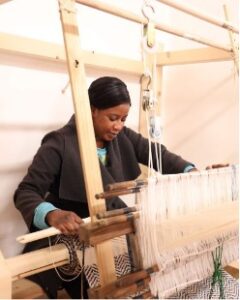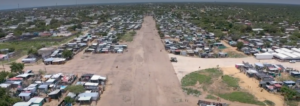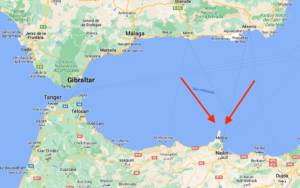Share
Camini is a small village in the province of Reggio Calabria, in the South of Italy, became famous as the village of hospitality. In fact, the town counts with around 250/280 inhabitants, of which 154 are migrants (Tuttitalia). This is due to the fact that Camini holds a hosting and integration project for refugees and asylum seekers, as part of the SAI network (ex SPRAR and ex SIPROIMI).
The SPRAR network
The SPRAR network, Sistema di Protezione per Richedenti Asilo e Rifugiati (Protection system for asylum seekers and refugees) has been created in 2002 by the institutionalisation of a phenomena already present in Italy: the widespread hosting and integration of migrant and refugees on a local level. In fact, since the 90’, many towns, all along Italy, started to develop different hosting and integration project, so as to offer a response to the increase in the number of immigrants, asylum seekers and refugees in Italy.
As said before, the SPRAR was based on the principle of widespread hosting, bit as it means, hosting refugees and asylum seekers not only in the main migratory destinations, but as well, and mainly, in small rural towns. The idea is to combine two “problems” such the increasing migratory pressure and the depopulation of rural villages, giving both of them a common solution.
Each town eager to hold a SPRAR project could have become part of the network and then give the project under management of a local CSO. Every project could have been composed of different activities and workshops, most of which based on social and solidarity economy approach, so as to partially self-finance the project itself and offer a work opportunity to the beneficiaries.
I spoke in the past tense about the SPRAR because this system has been modified twice: first in 2018 as a result of the Decreto Sicurezza (law 113/2018) which established the SIPROIMI[1] and the second one in 2020, when the actual SAI[2] network has been established, as a result of the Decreto Lamorgese (decree-law 130/2020).
The Decreto Sicurezza strongly reduced the operativity of the SPRAR network, as well as the funding; even if the Decreto Lamorgese partially re-established the ancient SPRAR system, few differences persists.
Camini’s project
Camini’s project has been established in 2015[3], through the of a local cooperative Eurocoop Servizi “Jungi Mundu”[4][https://eurocoopcamini.com/ ] (the project management body) and the and municipal administration of revitalizing the town. In fact, he village, due to his geographical isolation and the lack of opportunities, suffered of massive emigration flows, with the consequent depopulation of it and the ageing of its inhabitants: in 2013, the aging index[5] was 214.6.
Since then, the project strongly developed, nowadays it has a capacity of a capacity of 118 people.
Many workshops and activities have been created: a kindergarten (open for children of migrant as well as “natives”), an artistic workshop, an educational farm, a lutherie workshop, a ceramics workshop and two textile workshops. All the activity are based on the recuperation of the local culture and knowledge: for instance the in the AmaLa workshops[https://www.facebook.com/AmaLaCamini] it is used a typical sewing frame, a knowledge that almost got lost.

https://eurocoopcamini.com/servizi/
[the picture has been taken from the website of the cooperative (see the link). I don’t know if it is possible to keep it or not]
The impact of the project on Camini
The impacts are multiple, economical, cultural and social.
Under the economical prism, the project have revitalised the local economy: first of all the cooperative employs 40 people, 31 of which are natives. Considering that native caminoti (the dialect appellation for Camini’s inhabitants) are around 130, and that families are composed by 4 people each, this means that at least 1 person of each family works for the cooperative. Furthermore, the increased population growth has had a positive impact on local commerce. Considering the geographical isolation from which the country suffers, it is possible to assume that commerce’s clients are almost exclusively local inhabitants. Furthermore, the cooperative Eurocoop Servizi has established a partnership with local commerce: all the project’s beneficiaries receive a shopping voucher usable in the local shops.
Under a social and cultural point of view, Camini has become a cultural melting pot. People from different countries (Italy, Morocco, Tunisia, Libya, Syria, Afghanistan, Nigeria, Namibia, among others) live together.
New comers learnt the local culture and language as well as natives learnt others cultures and languages. This village represents an example of integration, not in a political sense, but truly integration. Quoting Edouard Glissant, Camini is a trans-multicultural context, in which the relations and exchange between all people have given birth to a totally new society and a new culture made up of a little of the culture of each person living there. Everyone is not only very welcome in Camini, but he/she became part of it. As Gianni (one of the inhabitants of Camini, called him the migrant from Sicily due to his origin) once said:
“a Camini tu non sei solo. È come una cosa che ti fa sentire che ci sei, che tu esisti”
“a Camini you are not alone. It is like something that makes you feel you are there, that you are alive”
[1] Sistema di protezione per titolari di protezione internazionale e minori non accompagnati (Protection system for holders of international protection and unaccompanied minors)
[2] Sistema di Accoglienza e Integrazione (hosting and integration system)
[3] Fist Camini participated, in 2014, to a notice issued by the Quaestor as a result of which 10 refugees have been hosted in the village. In 2015 the town joined the SPRAR network.
[4] Jungi mundu means unite the world in Calabrian dialect
[5] This is a summary indicator that measures the ratio, as a percentage, of the population aged 64 years or older to the population aged 14 years or younger. Indicator = (population ≥ 64/ population ≤ 14) *100



Average Rating